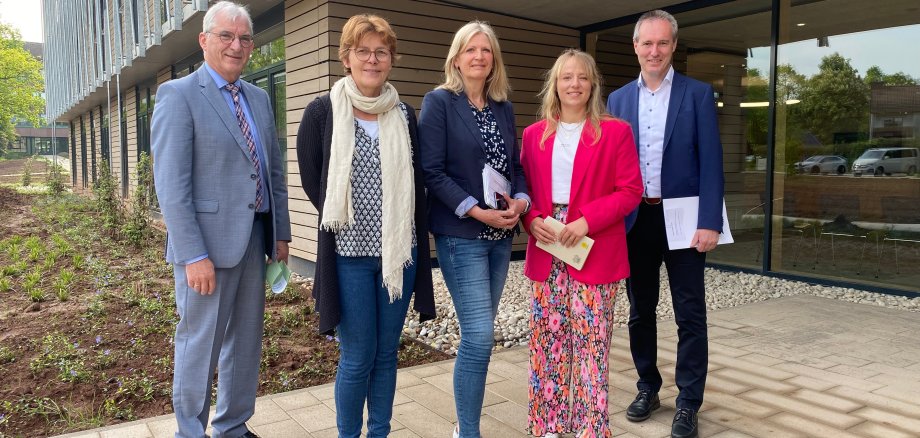Women's Office becomes Women's and Equal Opportunities Department
The Women's Office of the district is realigning its content. Renamed the Women's and Equal Opportunities Service, the department will in future also promote offers to improve inclusion and equal opportunities in Waldeck-Frankenberg. Equality has already been one of the central topics of the work of the Women's Office in the past years. Since equal opportunities and inclusion are important prerequisites for the equality of people in the district, the umbrella service has realigned itself in this respect and set itself up organisationally. The aim is to develop long-term offers and measures to promote the participation of everyone in Waldeck-Frankenberg.
To this end, the department has also received personnel reinforcement: In addition to the long-standing Women's Officer and Head of Department Beate Friedrich, the Deputy Women's Officer and Municipal Inclusion Officer Miriam Drüppel and her deputy and Coordinator of the Model Region Accessibility and Tourism Alexandra Köck will in future also increasingly take care of the topics of inclusion and accessibility.
Joining forces
The district has been one of Hesse's model regions for accessibility and tourism since last year. The department, which was previously part of the Social Affairs Department, has been assigned to the new Women's and Equal Opportunities Department with the reorganisation of the Women's Office in order to bundle the topics and forces in this area. Some measures to strengthen participation in Waldeck-Frankenberg have already been implemented, many more will follow.
For example, the district has been an assistance dog-friendly municipality for several months. People who are accompanied by an assistance dog - so-called assistance dog teams - are thus warmly welcome in all administrative offices of the district. The appropriate conditions have been created for this and the employees have been sensitised to the topic. Furthermore, the district has created a housing exchange for barrier-free housing in which offers and requests are "matched" online in order to better cover needs in this area. In addition, citizens can report barriers in the district digitally and with just a few clicks via an online barrier reporter. Furthermore, there is currently a competition that awards measures in the gastronomy sector that contribute to more accessibility and thus to more inclusion. Numerous other projects are planned.
Keywords:
Inclusion Model Region Accessibility Housing Exchange Specialist Service Women & Equal Opportunities
